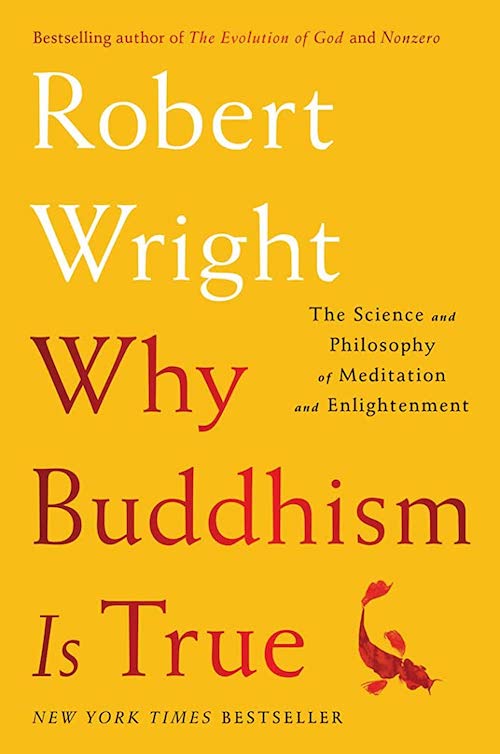Why Buddhism Is True
Book Author: Robert Wright
Summary reviewed by:
Terrence Timmons
Terrence Timmons
Analyst
Bachelor of Arts (BA), University Of California, Santa Barbara 2019
With over 4 years of experience as an analyst. Terrence Timmons is committed to analyzing summaries without compromising on quality.
Why Buddhism Is True: Summary
Imagine discovering a path to true happiness and understanding the nature of reality—this is what "Why Buddhism Is True" offers. At its core, the book presents a compelling thesis: the principles of Buddhism align with modern scientific research and psychological insights, providing a robust framework for personal development. Robert Wright, leveraging his background as a seasoned journalist and a scholar of religion, delves into the evolutionary psychology underpinning human desires, suffering, and delusions. His expertise lends the narrative a unique credibility, bridging ancient wisdom with contemporary science.
Wright's exploration begins with the assertion that our minds have been shaped by evolution to prioritize survival and reproduction, often at the expense of our happiness. He introduces the concept of "modular mind" to explain how different parts of our brain fight for control over our thoughts and actions, leading to the dissatisfaction and illusion Buddhism seeks to overcome. Through a detailed examination of Buddhist teachings, particularly the Four Noble Truths and the concept of not-self, Wright demonstrates how these insights are supported by findings in psychology and neuroscience.
The approach to personal development advocated in the book is both realistic and achievable, focusing on mindfulness meditation as a key practice for recognizing and releasing the grasp of these mental modules. Wright provides practical guidance on how to apply these strategies in everyday life, including mindfulness of breathing and loving-kindness meditation, to cultivate happiness and reduce suffering. He shares anecdotal evidence and research findings to show how these practices can lead to significant improvements in mental health, emotional resilience, and interpersonal relationships.
Ultimately, "Why Buddhism Is True" is a manual for living a more fulfilled life, grounded in a deep understanding of the human condition. It offers readers practical tools and exercises to implement Buddhist teachings in their daily routines, encouraging a journey towards personal enlightenment that is both informed by ancient wisdom and corroborated by modern science.
Why Buddhism Is True: Genres
Bestsellers
Buddhism
Non-fiction
Philosophy
Psychology
Religion and Spirituality
Self-help
Spirituality
Mindfulness
Why Buddhism Is True: Themes
Interplay of Buddhism and Science: Wright explores how Buddhist concepts align with contemporary psychological and evolutionary theories, suggesting that understanding the mind through Buddhism can lead to genuine happiness.
The Nature of Suffering: Central to the book is the Buddhist teaching on the origin of suffering, its causes, and how to mitigate it through mindfulness and meditation, backed by scientific evidence.
The Illusion of the Self: A significant portion of the book is dedicated to the Buddhist notion of not-self, arguing against the Western concept of an intrinsic, unchanging self. Wright uses examples from neuroscience to support this idea.
Mindfulness and Meditation: The practical application of mindfulness meditation is a recurring theme, with Wright detailing its benefits for emotional regulation, stress reduction, and achieving a deeper sense of peace and satisfaction in life.
Why Buddhism Is True: Methodology
In creating this summary, we delved into Robert Wright's "Why Buddhism Is True" with a keen focus on delivering an experience that resonates deeply with your intellectual and emotional landscapes. Our expert team meticulously analyzed the book’s rich interplay between Buddhism and science, the profound insights on suffering and the self, and the transformative power of mindfulness, ensuring each point reflects the author’s rigorous examination and practical solutions. By synthesizing these complex ideas into a clear, actionable format, we aim to empower you with not just knowledge, but pathways to apply these insights into your life, all while upholding the utmost standards of quality and integrity to ensure each word is a true reflection of the work’s essence.


Why Buddhism Is True
Date Published: August 8, 2017
Disclaimer: As an Amazon Associate I earn from qualifying purchases.




